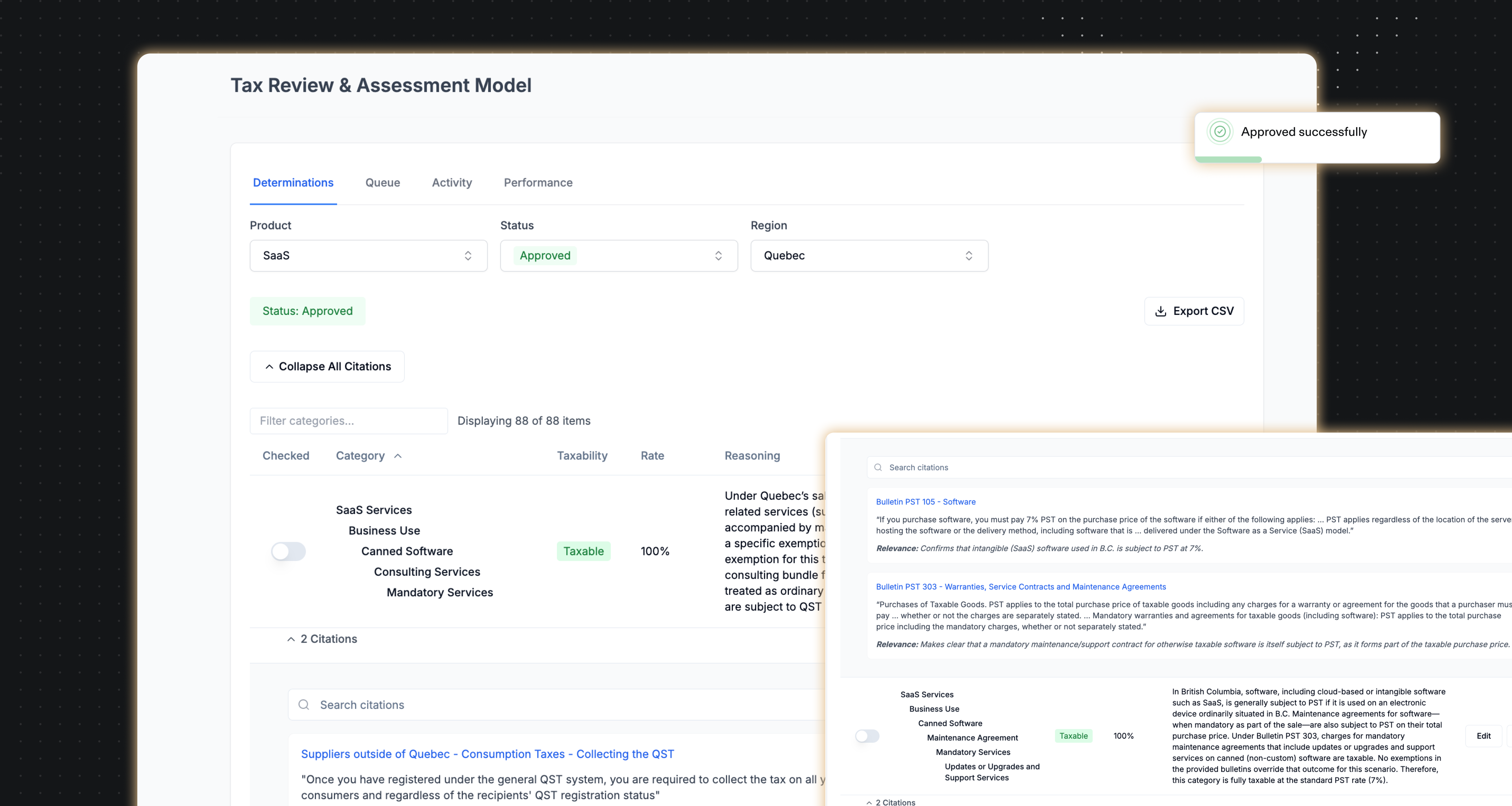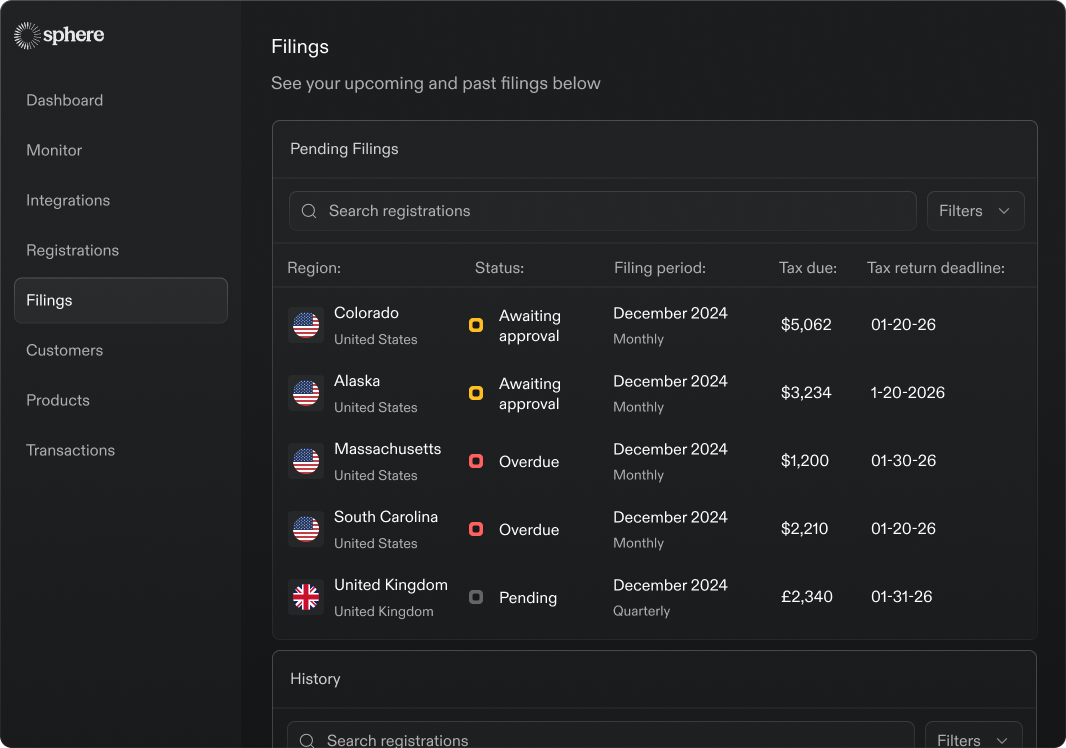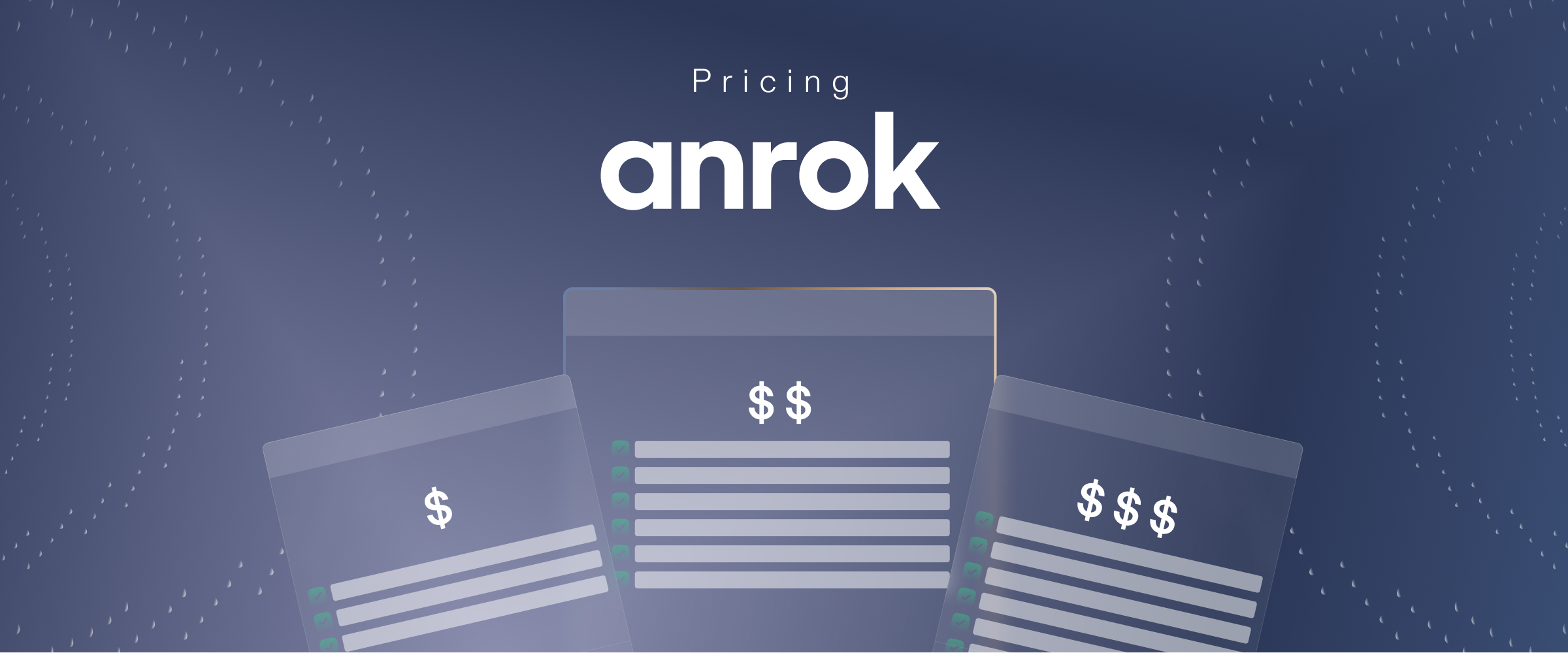
If you’re a finance leader at a SaaS or e-commerce business, international tax compliance will always be a major part of your job.
For example, imagine Sphere operated a retail store here in San Francisco.
As of this writing, all purchases made at our store would be subject to an 8.625% sales tax, which is a combination of the California state sales tax (7.25%) and San Francisco city and county sales tax (1.375%).
(For the record, we don’t own a retail store here in San Francisco. Although that would be cool. Maybe we’ll open one someday. 😃)
Sadly for our finance team, Sphere is a SaaS company with customers all over the world.
We must comply with thousands of ever-changing international tax laws, including every VAT, GST, and sales tax law, which are regulated based on the location of our customers, not our location here in San Francisco.
In this article, we’ll take a look at international tax compliance, why it is so complex, and how finance leaders at SaaS and e-commerce companies can successfully navigate their obligations as they sell across borders.
What is international tax compliance?
International tax compliance is the adherence to the tax laws that govern cross-border transactions and business operations. These laws vary across thousands of separate tax jurisdictions around the globe (the U.S. has 14,000 different jurisdictions all on its own!).
Indirect taxes such as sales tax, VAT, and GST are often the most urgent compliance issue for companies with customers in multiple tax jurisdictions, but indirect taxes are not the only challenge. Companies operating internationally must also comply with laws and regulations covering:
- Tax recovery
- Withholding taxes
- E-invoicing mandates
- Customs/import duties
- Transfer pricing
Thankfully, business owners no longer need to track compliance using spreadsheets and formulas. A new generation of AI-powered software platforms is now automating much of the drudgery.
What Is International Tax Compliance?
International tax compliance is the process of meeting all the legal tax obligations across the many jurisdictions where your business operates, sells, or delivers services.
Any business that sells across borders must comply with all tax laws that apply to its business. Many tax regulations (including most sales tax, VAT, and GST regulations) are calculated based on the location of the buyer, not the location of the seller.
These “indirect taxes”—taxes collected by a seller and then remitted to a government—are the core of international tax compliance for SaaS and e-commerce companies. Examples of indirect taxes include:
- Sales tax, VAT, and GST
- Excise duty
- Customs duty
- Entertainment tax
Beyond Indirect Tax—Other Obligations
While indirect taxes are commonly discussed, financial leaders must be familiar with all types of tax liability. Other tax obligations include:
- Input taxes
- Withholding tax
- E-invoicing mandates
- Customs and import duties
- Transfer pricing
A variety of software tools are now available to help finance leaders manage these obligations, but many of them are narrowly focused on specific areas of tax compliance.
Rather than using multiple tools, SaaS and e-commerce finance leaders are increasingly choosing a unified platform that manages global tax compliance using one tool instead of many.
Key Global Tax Obligations for Businesses
Companies selling across borders face an overwhelming number of tax compliance obligations.
Indirect Taxes (VAT, GST, Sales Tax)
Indirect taxes are taxes levied on the sale of goods and services. There are many types of indirect taxes. They are known by different names and follow different rules depending on the jurisdiction.
Indirect taxes are almost always determined by the location of the buyer, not the location of the seller. If your company sells a SaaS product, for example, you face tax obligations in every jurisdiction where you have a customer.
Examples of Indirect Taxes: Sales tax, VAT, and GST
In the U.S., while the IRS does not levy sales taxes on transactions, sales tax is collected by most U.S. states and many local governments on the sale of goods and services.
In the European Union, each EU member has established its rate for value-added tax (commonly known as VAT), which is included in the sale of almost all goods and services.
Many countries in Southeast Asia collect Goods and Services Tax (GST). Sales in Australia are also subject to GST.
Each Tax Jurisdiction Has Its Own Rules
There are thousands of tax jurisdictions around the globe, each with its own rates, rules, and reporting requirements. This makes it extremely difficult for finance leaders to track the many and ever-changing tax obligations they must comply with.
For example, in the U.S., sales of SaaS products are sometimes taxable and sometimes not. Ohio collects sales tax on the sale of B2B SaaS transactions. Ohio does not, however, collect sales tax on SaaS for personal use.
In the EU, a process known as reverse charge is sometimes used, which shifts the burden of VAT remittance from the seller to the buyer. This process is typically used to prevent fraud and reduce administrative work.
The reverse charge process is commonly used in B2B, cross-border transactions where the seller does not otherwise have a presence in the buyer’s tax jurisdiction. This process can relieve the seller from having to collect and remit VAT for an isolated transaction in a jurisdiction where they do not commonly do business.
Other Compliance Areas
Indirect taxes are the core tax compliance issue for SaaS and e-commerce businesses. But finance leaders at global companies must also be aware of a variety of other tax obligations, including:
Input Tax
Input taxes are the taxes paid by a company on goods or services purchased for operations. For example, a manufacturing company may pay taxes on the raw materials it purchases that are then turned into products that are sold to customers.
Input taxes can often be reclaimed by deducting them from the taxes collected on sales of the company’s product. The manufacturing company, for example, may be able to deduct the input taxes it pays on raw materials from the VAT it collects when it sells its products.
Withholding Tax
A withholding tax is a tax obligation that commonly arises when a business makes an interest or dividend payment across borders. For example, if a company makes a dividend payment to an investor in another country, the investor may be liable to pay tax on that dividend payment to the company’s home country. In these cases, some jurisdictions require the company to withhold and remit a portion of the interest or dividend payment.
Withholding taxes are meant to prevent fraud and tax evasion. They can be especially difficult to comply with. The EU has taken steps to simplify the withholding process within its member countries.
E-invoicing Reporting
Many countries require that invoices be shared with tax authorities before being sent to customers.
Customs Duties
Companies that ship physical goods across borders must classify their products accurately, declare their value, and pay their duties promptly.
Transfer Pricing
Transfers within a company that cross borders create additional compliance requirements. Many jurisdictions require detailed records documenting these transactions as part of the annual returns process.
What to Look for in International Tax Compliance Software
For finance leaders at SaaS and e-commerce companies, it’s essential to find tax compliance software that helps you manage all your obligations across borders. Here are the features and functionality to look for.
Direct Tax Authority Integrations
Make sure you choose software that integrates with the systems used by taxing authorities. This will make the reporting process significantly less stressful. It will also streamline the remittance and filing process for tax returns and eliminate potential mistakes from third-party intermediaries or manual uploads.
Scalable Tax Research
Tax laws change constantly, often with little notice. Make sure your global tax compliance software includes AI-driven monitoring that finds changes to tax laws and regulations as they happen and updates its rules to match.
Broad Compliance Coverage
Don’t rely on separate tools for each type of international tax compliance. Instead, look for a tax solution that brings all your tax compliance functions together in one tool.
Integrations With Billing/ERP Systems
A tax platform with direct access to real-time data from your billing and ERP systems ensures accurate reporting and significantly lowers the chance of mistakes.
Transparent Pricing
Most tax providers have complicated pricing that usually charges a percentage of your revenue along with advisory fees. These models make it easy to get started with their services, but they can easily become an exorbitant expense as your business grows.
A better pricing model is one that has transparent rates based on the number of regions in which you operate.
Dedicated Support
Every company needs help with international tax compliance from time to time. Make sure your platform offers on-demand support when you need it.
Why Sphere Stands Out
Sphere’s AI-enabled platform helps you simplify your global tax compliance, empowering you to manage sales tax, VAT, and GST compliance workflows with ease: from monitoring and registration to tax calculation, filing, and remittance.
Here are a few ways Sphere stands out from the competition.
Direct Filings
.png)
Sphere integrates with over 100 tax authorities. Businesses using Sphere can streamline their process and file tax returns without needing third-party assistance. This makes the e-filing process faster and more secure.
AI-Powered TRAM Research

Sphere’s TRAM research engine uses artificial intelligence to monitor changes in global tax law. It tracks changes to rates, reporting thresholds, and other changes to global tax laws to ensure you’re able to stay compliant.
Comprehensive Coverage
.png)
Sphere’s cloud-based platform offers compliance solutions for a variety of tax-related areas, including indirect taxes, e-invoicing reporting, and withholdings. Sphere’s development team is also rapidly expanding the platform’s capabilities, with additional features for transfer pricing and customs in development.
Seamless Integrations
.png)
Sphere integrates with all major billing and ERP platforms. Using API-based integrations and connectors, companies can automate tax data transfer across systems and maintain accurate records.
Transparent Pricing
Instead of charging a percentage of each transaction, Sphere uses a simple, predictable fee model based on the number of regions in which your company is active. Using this model, Sphere’s pricing scales with transaction volume instead of company revenue.
Dedicated Support
Sphere offers a dedicated rep, communication via Slack, and an expert tax team to help with global tax compliance issues as they arise.
How Leading International Tax Compliance Software Solutions Compare
Here’s a look at how other international tax compliance platforms compare to Sphere.
Anrok
- Focus: U.S.-centric. Strong in SaaS indirect taxes.
- Limitations: Outsources all international functionality, which reduces automation. Narrow scope beyond U.S. sales tax. Higher costs. Support rated as average.
Avalara
- Focus: Well-established provider with broad recognition. Offers indirect tax calculation and some input tax features.
- Limitations: Product experience not known to be refined. Outsources much of the international compliance work. Broader functionality (e.g., input tax) exists but remains basic. Customer support is often cited as a weak point.
Stripe Tax
- Focus: Easy-to-use calculation tool embedded into Stripe’s payments platform.
- Limitations: Limited in scope. Only calculates tax; does not handle registrations or filings. Outsources international functionality to partners like Taxually. No coverage for broader compliance areas such as e-invoicing or withholding tax. Pricing can be high relative to scope.
Vertex
- Focus: Established enterprise provider with strong indirect tax capabilities and broad corporate features.
- Limitations: While international coverage is strong, it still relies on outsourcing. Implementations are heavy and resource-intensive. Pricing is often tied to percentage of revenue, which is expensive for scaling businesses.
Fonoa
- Focus: API-first platform recognized for e-invoicing, particularly in Europe.
- Limitations: Indirect tax capabilities are relatively basic. Pricing is considered high, with a strong emphasis on marketplace operators rather than SaaS or e-commerce businesses.
Sovos
- Focus: Comprehensive compliance services. Known for handling VAT, GST, and e-invoicing obligations.
- Limitations: Operates more like a professional services firm than a software provider. Relies heavily on human expertise rather than end-to-end automation. Premium pricing.
Scale Confidently With International Tax Compliance Software
While other platforms tend to be specialized in one area of global tax compliance, Sphere is the only AI-powered, global-first tax compliance platform.
Sphere offers direct integrations with over 100 tax authorities, TRAM research to ensure compliance as laws change, transparent pricing, and responsive support.








.png)

.png)







